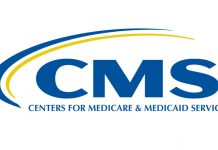Federal Legislative Calendar
- October 23 is the beginning of a four-week work period. Both Houses are in this week, next week, and the week of November 6 and 13. They are off Thanksgiving week and back in session November 28
- President Trump is scheduled to go to Asia for 12 days through November 14
- Both Houses are out the week of Thanksgiving
- The government is currently funded until December 8
- Congress is scheduled for Sine Die adjournment on December 15
Budget Resolution
The Senate passed its budget amongst partisan lines last week; the House will be voting on the Senate budget this Thursday allowing for a unified budget with reconciliation protection for tax reform.
What came out of the Senate budget that is different from the House budget:
- Unlike the House Budget which is budget neutral for tax reform, the Senate Budget allows for $1.5 trillion in increase deficit spending to pay for a tax overhaul.
- The House Budget resolution would have required $203 billion worth of cuts from entitlement spending in order to get tax reform. The Senate resolution does not require it, their budget allows for cuts in entitlements but does not require it to move onto tax reform.
Cost Sharing Reduction Payments
While the Alexander-Murray concept is out there, Tuesday afternoon the Chair of the Finance Committee Warren Hatch (R-UT), and the House Ways and Means Committee Chair Kevin Brady (R-TX) released packaged legislation to extend the CSR thru 2019, including:
- Repeal of individual mandate thru 2021
- Not to enforce the employer mandate 2015-2017
- Allow for HSA expansions
- Inclusion of pro-life protections
The Brady-Hatch plan makes it easier to get through the House, and the Alexander-Murray legislation has the 60 votes to pass in the Senate, which opens the possibility of a conference committee between the two chambers.
CHIP Reauthorization/Medicare Extenders
The Children Health Insurance Plan (CHIP) Reauthorization legislation could be on the floor as early as this Thursday. This is the partisan CHIP extension that passed the House Energy and Commerce Committee amongst party lines which includes the delay of Medicaid DSH cuts until 2018 but to offset the delay with the extension of Medicaid DSH cuts to 2026 and 2027 for the out years.
The CHIP Reauthorization needs to have 60 votes in the Senate. It’s still unclear if CHIP moves alone, CHIP moves with the Medicare extenders free standing, or CHIP and the Medicare extenders will all get attached into the year-end December 8 or December 15 package.
Tax Reform
Members of the tax writing committee have been more bullish, behind closed doors, with the favorability of passing a tax legislation package because of the flexibility of having $1.5 trillion extra to spend on tax cuts.
In addition, the House Ways and Means Committee has done a lot of work on tax reform these past few years, starting with Chairman Dave Camp (R-MI). This effort has continued with Paul Ryan (R-WI) prior to him becoming Speaker of House, and now with Chairman Kevin Brady (R-TX).
With this past experience and now the flexibility, tax reform legislation is expected to move forward. Ongoing issues of concern include such issues as state taxes and local deductibility, mortgage deductions, non- for profit charitable university community hospitals tax-exempt status, and 401k’s (despite President saying they won’t be affected). SDAHO, AHA and LeadingAge are cautiously hopeful Congress will not go after the tax-exempt status.
Final Rules
Next week, we anticipate three rules to finalize, the Outpatient Rule, Physician Fee Schedule, and the Home Health Groupings Model (HHGM). The Outpatient Rule has the 340B cut in it and the Physician Fee Schedule has the reduction in payment to non-grandfathered, so new build outpatient facility from 50% OPPS fee schedule to 25%. The HHGM would drastically alter how home health is paid for by Medicare.
Worksheet S-10
CMS has extended the window for hospitals to amend uncompensated care, bad debt, and other Worksheet S-10 reporting on their fiscal year 2014 and 2015 Medicare cost reports, from October 31 to January 2.
- Proper reporting of S-10 data is critical, as it is now used for the distribution of the vast majority of Medicare Disproportionate Share Hospital (DSH) funding.
- Any S-10 reporting changes made by hospitals by the January 2 deadline will influence federal fiscal year (FFY) 2019 Medicare DSH payments. CMS will not recognize S-10 changes for current (FFY 2018) DSH payment levels.
CMS has opened and extended windows for S-10 reporting changes in recognition of revised reporting instructions issued by the agency for charity care and bad debt data reported on worksheet S-10.






